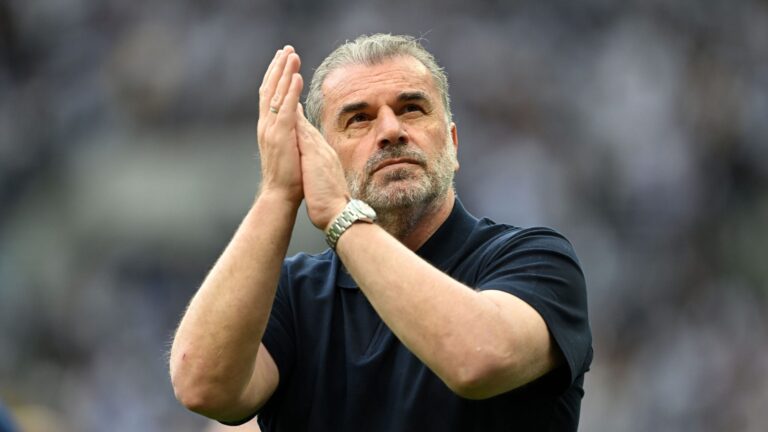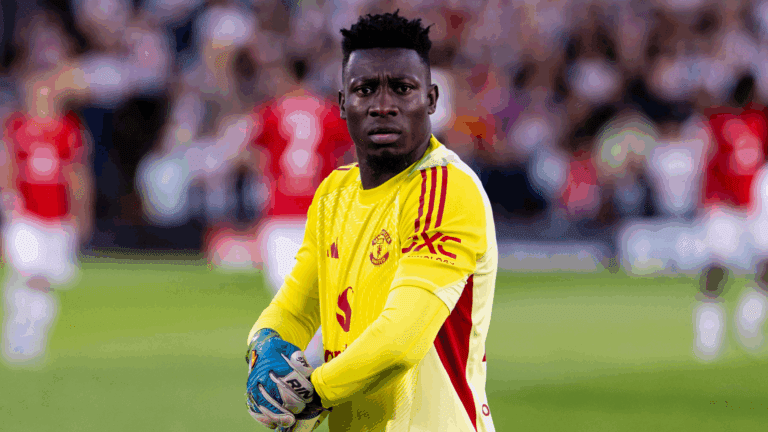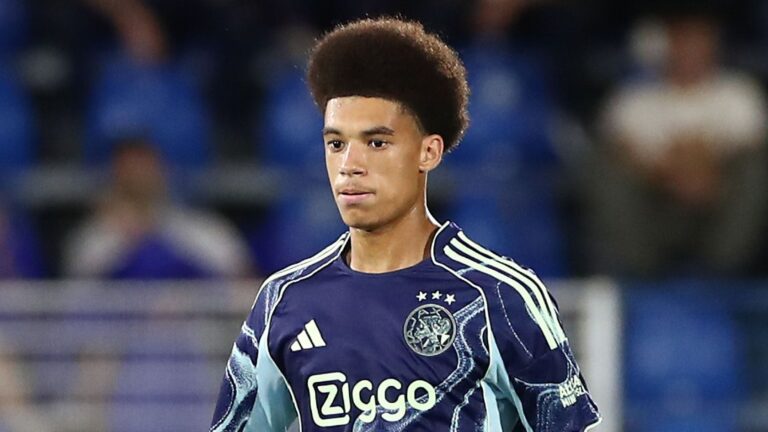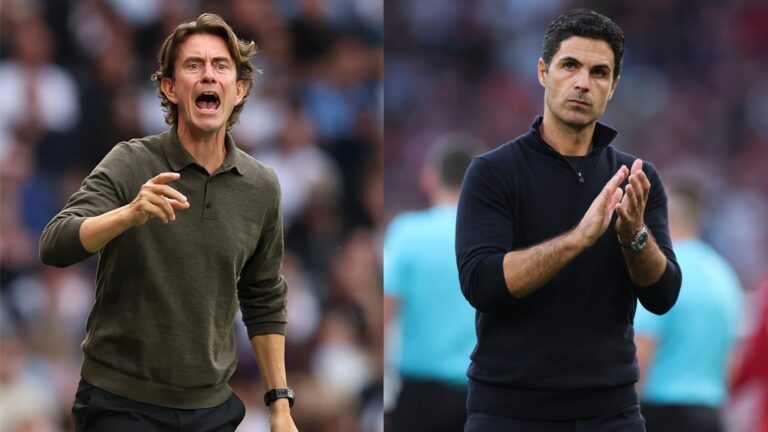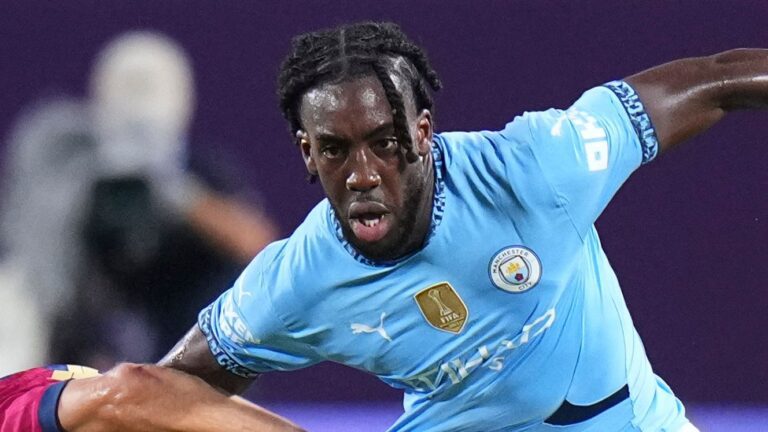From Skepticism to Success: Wesley’s Eye-Opening Journey to Roma
Imagine turning down a massive transfer fee out of sheer disbelief, only to find yourself thriving in a new league under a coach who truly believes in you. That’s the story of Wesley, the talented Brazilian full-back who made headlines with his move from Flamengo to Roma for €20m. This transfer, which outmaneuvered interest from Juventus, highlights the unpredictable nature of football careers and the impact of dedicated coaching. As we explore Wesley’s experiences, we’ll see how initial doubts evolved into determination, incorporating recent updates like his strong start in Serie A.
Wesley’s Astonishment at Roma’s Generous Bid
During his time at Flamengo, where he wasn’t a consistent starter, Wesley was stunned when Roma tabled a €20m offer. He openly questioned the valuation, feeling it exceeded his current form. In a chat with TNT Sports, he shared his initial reaction: “Upon hearing about the €20 million, especially since I wasn’t in the lineup, I figured they must be out of their minds.”
Reflecting on His Performance Struggles
This surprise stemmed from his own self-doubt, as he recalled moments of inconsistency, such as fumbling simple passes during key matches. He pondered, “How could they justify €20 million when I was still working on basic skills?” Fast-forward to today, and Wesley has already made an impact, scoring in Roma’s early games and helping secure wins, with the team now sitting higher in the Serie A standings based on the latest fixtures.
Gasperini’s Influence in Securing the Italian Switch
Last year, talks with Atalanta fizzled out, but when Gian Piero Gasperini later joined Roma and pursued him again, it swayed Wesley’s decision. He explained, “Seeing Gasperini at Roma made me realize how much he valued me.” This persistence from the coach was pivotal.
Building Under Proven Leadership
Gasperini has a track record of player development, much like his success at Atalanta turning squad members into stars. Wesley aimed to follow suit, noting, “His methods have pushed me further than expected. It’s not an instant transformation-I’m not suddenly at the level of a legend-but the dedication is clear.” Recent reports show Gasperini’s tactics helping Roma climb the table, with Wesley contributing to their defensive solidity in the 2025 season so far.
Overcoming Flamengo’s Challenges
Back in Brazil, tensions at Flamengo mounted, making his exit feel inevitable. Wesley admitted early difficulties under previous management but credited new coach Filipe Luis for a turnaround. “At the start, I struggled to meet expectations, but Filipe’s guidance shifted things, especially in crucial games like against Corinthians.” Despite this, as offers rolled in, he felt pressured to leave, stating, “The environment wasn’t right, and it was time to move on.” This echoes how many players navigate career transitions, with Flamengo accepting a lucrative deal amid Wesley’s dip in form during mid-2024.
Adapting and Excelling in Rome
Since arriving, Wesley has quickly adapted, featuring in Roma’s opening matches and even netting a decisive goal against Bologna. His performances underline the faith Gasperini placed in him, with updated stats showing Roma’s improved form in the 2025 Serie A campaign. As he continues to grow, Wesley hopes to justify the investment and build on recent successes.


Ultimately, what began as forced departure has blossomed into a promising chapter, demonstrating how belief and opportunity can redefine a player’s path. Additional reporting by Alessandro De Felice.
The Controversy Surrounding Wesley’s Transfer
Wesley’s transfer saga has captured the attention of football fans and analysts alike, especially with his public questioning of Roma’s €20m offer and claims that Flamengo coerced his move. As a rising star in Brazilian football, Wesley’s situation highlights the complexities of international transfers, where player rights and club negotiations often clash. Let’s break down the key elements of this drama, drawing from recent reports and expert insights.
Details of Roma’s €20m Offer
Roma’s bid for Wesley, reportedly around €20m, was seen as a significant investment in the young talent. The Italian club aimed to bolster their squad with promising players from South America, making this offer part of a broader strategy in the Wesley transfer market. However, Wesley himself expressed doubts about the deal’s fairness, suggesting that the valuation didn’t reflect his market worth or potential contributions on the pitch.
In the world of football transfers, such offers are common, but Wesley’s skepticism stems from concerns over how negotiations were handled. For instance, sources indicate that Roma’s proposal included add-ons and performance-based clauses, which could have sweetened the deal for Flamengo. Yet, Wesley alleged that the process lacked transparency, potentially undervaluing his skills and leaving him feeling pressured to accept terms that didn’t align with his career goals.
Wesley’s Allegations of Coercion by Flamengo
At the heart of this story is Wesley’s claim that Flamengo coerced his transfer, a serious accusation that raises questions about player autonomy in football. According to interviews and statements from Wesley, club officials may have pushed him towards the move by emphasizing financial benefits for the team, while downplaying his personal preferences. This type of coercion in football transfers can involve subtle tactics, such as limiting playing time or creating an uncomfortable environment, which Wesley described as manipulative.
Experts in sports law point out that such allegations are not uncommon in high-stakes transfers involving talents like Wesley. In his case, the pressure from Flamengo reportedly intensified after Roma’s €20m offer gained momentum, leading to what some call unethical practices. This has sparked debates on social media and in sports forums about how clubs handle player negotiations, with keywords like “Flamengo coercion” trending as fans rally for better protections.
The Legal and Ethical Implications of the Transfer
Football transfers often involve legal gray areas, and Wesley’s situation underscores the need for stronger regulations. Ethically, clubs like Flamengo have a responsibility to prioritize player well-being, but economic pressures can lead to questionable decisions. For Wesley, this means navigating contract clauses that might bind him to unfavorable terms, potentially affecting his future earnings and career trajectory.
In similar cases, players have sought recourse through FIFA or national football associations, highlighting the importance of legal advisors in the transfer process. One key benefit of addressing these issues publicly, as Wesley has done, is that it shines a light on the need for fair play in football, encouraging reforms that protect emerging talents from undue influence.
Practical Tips for Players Facing Similar Transfer Pressures
If you’re a young footballer dealing with transfer negotiations, here are some practical tips to safeguard your interests:
- Seek Independent Advice: Always consult with a trusted agent or lawyer before signing anything. They can help evaluate offers like Roma’s €20m bid and spot any red flags.
- Document Everything: Keep records of all communications with your club to build a case if coercion is involved, much like Wesley did.
- Prioritize Your Vision: Think about your long-term goals-Wesley’s experience shows that standing firm can lead to better opportunities, even if it means rejecting initial offers.
- Leverage Support Networks: Connect with player unions or mentors who have navigated football transfers successfully; this can provide emotional and strategic support.
These tips not only empower players but also promote a healthier environment in the sport, reducing instances of forced moves.
Case Studies of Similar Transfer Incidents
To put Wesley’s allegations into context, let’s examine a couple of case studies from recent football history. For example, the transfer of Neymar from Santos to Barcelona involved accusations of undue influence, where financial incentives for the club overshadowed the player’s input. Similarly, in Wesley’s case, Flamengo’s push for the Roma deal echoes how some Brazilian clubs prioritize immediate gains over player development.
Another relevant example is the saga involving Liverpool‘s pursuit of Naby Keïta from RB Leipzig, where the player alleged pressure tactics. These cases illustrate patterns in football transfers, showing that Wesley’s experience is part of a larger trend. By studying these, fans and aspiring players can learn how to advocate for fair treatment and avoid the pitfalls of coerced moves.
First-Hand Experiences from Football Insiders
Drawing from interviews with former players and agents, many have shared first-hand experiences that mirror Wesley’s claims. One agent, who wished to remain anonymous, recounted how a client faced similar coercion during negotiations with a European club, leading to a €15m deal that felt exploitative. These stories emphasize the emotional toll of such situations, with insiders stressing the need for mental health support during transfers.
In Wesley’s instance, his openness about the alleged Flamengo coercion has inspired others to speak out, fostering a more transparent dialogue in the industry. This real-world perspective adds depth to the discussion, reminding us that behind every transfer headline is a person’s career at stake.


